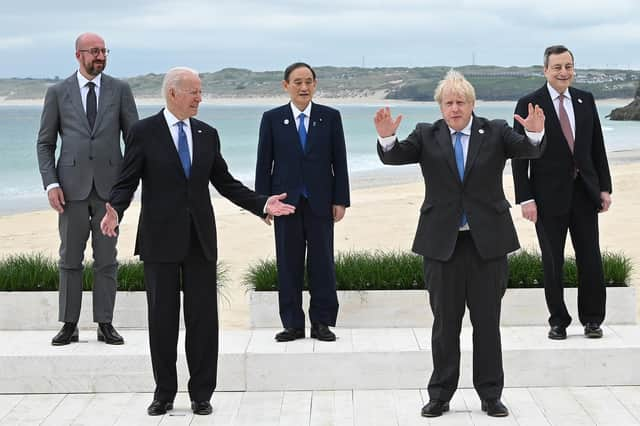Aukus alliance between UK, US and Australia sparks China's rage but will it help world escape 'Thucydides Trap'? – Scotsman comment


This quote, from The History of the Peloponnesian War, written nearly 2,500 years ago by Thucydides, an Athenian general forced into exile, has recently been occupying the minds of those concerned by the rise of totalitarian China.
Professor Graham Allison, of Harvard University, has popularised the idea of the ‘Thucydides Trap’, noting that over the last 500 years the emergence of a rising power that challenged a dominant one led to war on 12 out of 16 occasions. One example is the rise of Germany in the late 1800s and early 1900s, the challenge it posed to the UK, and the outbreak of the First World War.
Advertisement
Hide AdAdvertisement
Hide AdAs has been said before, history tends not to repeat itself but, sometimes, it rhymes. Thucydides wrote his book in the hope that people in the future would be able to learn from their mistakes and this has been one of the main values of the study of history ever since.
So the announcement of the new Aukus alliance between Australia, the UK and United States needs to be viewed in the context of an age-old story.
In a joint statement, Boris Johnson, US President Joe Biden and Australian Prime Minister Scott Morrison said that the “trilateral security partnership” would “strengthen the ability of each to support our security and defence interests” and “help sustain peace and stability in the Indo-Pacific region”.
The news produced a predictably furious reaction from Beijing with a Chinese foreign ministry spokesman claiming Aukus risked “severely damaging regional peace” and “intensifying the arms race”; the three nations were also “hurting their own interests”, he warned.
It may be that the alliance makes China feel threatened and conflict is therefore more likely. However it could also help China realise it cannot throw its weight around quite so much over flashpoint issues such as disputed islands in the South and East China Seas, reducing the risks.
But the world’s liberal democracies – which have rarely if ever gone to war with each other – need to realise they are not dealing with one of their own and tread carefully over displays of weakness or strength because, as history shows, we are living in dangerous times.
A message from the Editor:
Thank you for reading this article. We're more reliant on your support than ever as the shift in consumer habits brought about by coronavirus impacts our advertisers.
If you haven't already, please consider supporting our trusted, fact-checked journalism by taking out a digital subscription.
Comments
Want to join the conversation? Please or to comment on this article.
